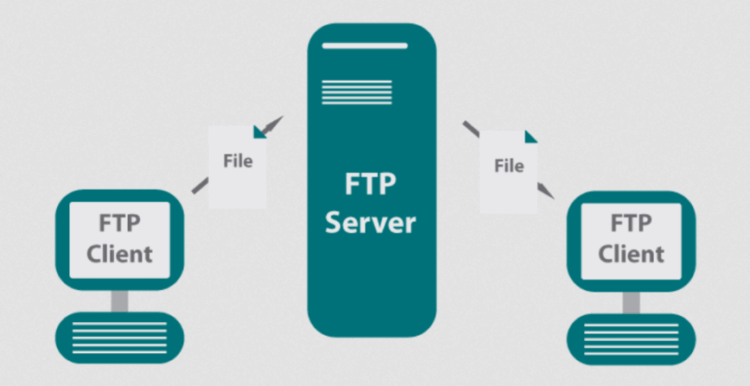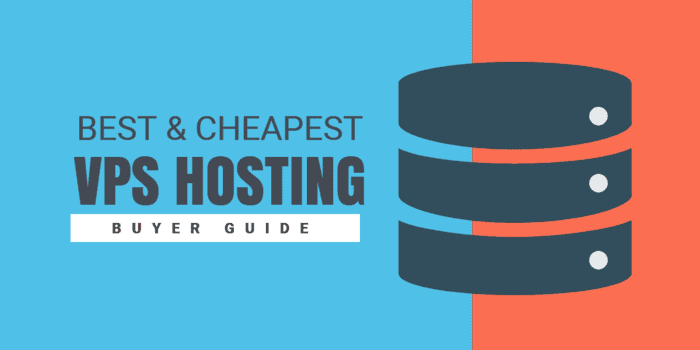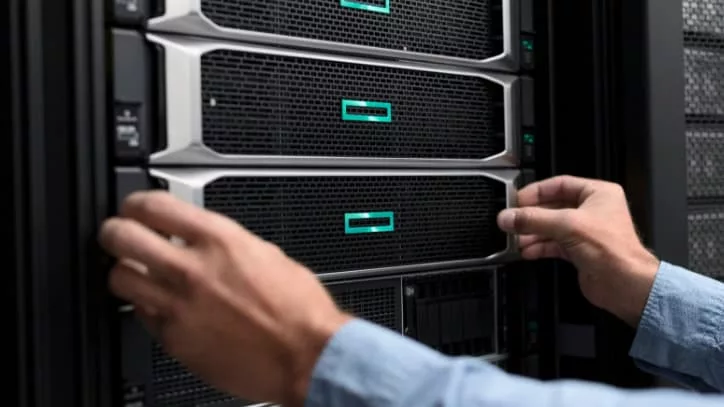Dive into the realm of dedicated servers where performance, security, and control converge to elevate your online presence. From understanding the core concept to maximizing its benefits, this guide is your gateway to a seamless hosting experience.
. This helps to patch any vulnerabilities and ensure that your server is protected against potential security threats.
Introduction to Dedicated Servers
A dedicated server is a type of hosting service where a single server is leased to a single client, providing exclusive access to all the resources and capabilities of the server. The primary purpose of using a dedicated server is to have full control over the server environment, including choosing the operating system, hardware specifications, and software configurations to meet specific needs.Advantages of Opting for a Dedicated Server
- Dedicated resources: With a dedicated server, you have full access to the server's resources, ensuring optimal performance and reliability for your applications and websites.
- Enhanced security: Since you are not sharing the server with other users, the risk of security breaches or data leaks is significantly reduced, providing a more secure hosting environment.
- Customization options: You can customize the server settings, install specific software, and tailor the server environment to your requirements, allowing for greater flexibility and control over your hosting solution.
- Better performance: Dedicated servers offer higher performance levels compared to shared hosting, as you are not competing for resources with other users, resulting in faster loading speeds and improved overall performance for your websites and applications.
Types of Dedicated Servers
When it comes to dedicated servers, there are different types available in the market to cater to various needs and preferences. Let's explore the main categories and differences between them.Managed vs. Unmanaged Dedicated Servers
Managed dedicated servers are fully maintained and supported by the hosting provider. This includes regular updates, security patches, monitoring, and technical support. On the other hand, unmanaged dedicated servers require the client to take care of all server management tasks, from software installations to troubleshooting. While managed servers offer convenience and peace of mind, unmanaged servers provide more control and customization options for experienced users.Traditional vs. Cloud-Based Dedicated Servers
Traditional dedicated servers are physical machines located in data centers, offering consistent performance and dedicated resources. In contrast, cloud-based dedicated servers are virtual machines that run on a cloud infrastructure, providing scalability, flexibility, and pay-as-you-go pricing. Cloud-based servers are ideal for businesses with fluctuating demands and the need for rapid scalability, while traditional servers are preferred for applications requiring high performance and reliability.Benefits of Using a Dedicated Server
Dedicated servers offer a wide range of benefits that can significantly enhance the performance, security, customization, and control of your website.Improved Performance
Dedicated servers provide exclusive resources for your website, ensuring that you have all the processing power, memory, and bandwidth needed to handle high traffic volumes. This results in faster loading speeds and improved overall performance, offering a seamless experience for your users.Enhanced Security
With a dedicated server, you have full control over the security measures implemented on your website. You can customize security protocols, install specific software, and configure firewalls to protect your data from potential threats. This level of security is crucial for safeguarding sensitive information and preventing unauthorized access to your server.Customization and Control
One of the key advantages of using a dedicated server is the ability to customize it according to your specific requirements. You can install any software applications, scripts, or tools that are essential for your website operations. Additionally, you have complete control over server settings, configurations, and resources, allowing you to optimize performance based on your needs.Setting Up a Dedicated Server
Setting up a dedicated server requires careful planning and execution to ensure optimal performance and reliability. Below is a step-by-step guide on how to set up a dedicated server, including hardware requirements and operating system installation.Hardware Requirements for Hosting a Dedicated Server
When setting up a dedicated server, it is essential to consider the hardware requirements to support the server's functions effectively. Here are the key hardware components needed:- Powerful CPU: Choose a multi-core processor with high clock speed to handle multiple tasks efficiently.
- Sufficient RAM: Opt for ample RAM capacity to accommodate the server's workload and ensure smooth operation.
- Storage Space: Utilize fast and reliable storage drives, such as SSDs, to store data and enable quick access times.
- Network Connectivity: Ensure high-speed internet connection and network interface cards for seamless data transfer.
- Cooling System: Implement an effective cooling system to prevent overheating and maintain optimal performance.
Proper hardware selection is crucial for the performance and stability of a dedicated server.
Installing an Operating System on a Dedicated Server
After acquiring the necessary hardware components, the next step is to install an operating system on the dedicated server. Follow these steps to install the OS:- Choose an Operating System: Select a suitable OS based on your server's requirements, such as Windows Server, Linux distributions like Ubuntu or CentOS.
- Prepare Installation Media: Create a bootable USB drive or CD/DVD with the OS installation files.
- Boot from Installation Media: Insert the installation media into the server and boot from it to initiate the OS installation process.
- Follow Installation Wizard: Follow the on-screen instructions to configure the OS settings, partition the drives, and complete the installation.
- Configure Network Settings: Set up network configurations, IP addresses, and other network parameters for connectivity.
- Install Necessary Drivers: Install required drivers for hardware components to ensure proper functionality.
Managing and Maintaining a Dedicated Server
When it comes to managing and maintaining a dedicated server, there are several best practices that can help ensure optimal performance and security.Regular Updates and Security Patches
One of the most important aspects of managing a dedicated server is to regularly update both the operating system and the software running on the server- Set up automatic updates to ensure that your server is always running the latest security patches.
- Regularly check for updates from the server's control panel or command line interface.
- Monitor security bulletins and alerts to stay informed about potential threats and vulnerabilities.
Monitoring Server Performance
Monitoring server performance is crucial to ensure that your dedicated server is running smoothly and efficiently.- Utilize monitoring tools to track CPU usage, memory usage, disk space, and network traffic.
- Set up alerts to notify you of any performance issues or potential bottlenecks.
- Regularly review performance metrics and identify areas for optimization.
Troubleshooting Common Issues
Despite regular maintenance, issues may still arise with your dedicated server. Knowing how to troubleshoot common problems is essential to minimize downtime and ensure continuous operation.- Keep a detailed log of system events and errors to help diagnose issues quickly.
- Test backups regularly to ensure data can be restored in case of a failure.
- Utilize online forums and support resources to troubleshoot complex problems effectively.
Scalability and Flexibility of Dedicated Servers
Dedicated servers offer businesses the ability to scale their resources as needed and customize them according to specific requirements. This scalability and flexibility are crucial for adapting to the changing demands of a growing business.Scalability for Growing Businesses
One of the key advantages of dedicated servers is the ability to easily scale resources to accommodate increasing traffic or storage needs. As a business grows, it may require additional processing power, storage space, or bandwidth to support its operations. Dedicated servers can be upgraded with minimal downtime, allowing businesses to seamlessly expand their capabilities as needed.Flexibility in Customizing Resources
Dedicated servers provide the flexibility to customize resources based on specific requirements. Businesses can choose the amount of CPU, RAM, storage, and bandwidth that best suits their needs. This customization ensures that resources are allocated efficiently and cost-effectively, without paying for unnecessary capacity.Examples of Scaling Up Dedicated Servers
- When an e-commerce website experiences a surge in traffic during holiday seasons, scaling up the dedicated server resources can ensure smooth operation and prevent downtime.
- A software development company launching a new product may need to scale up its dedicated server to handle increased downloads and user activity.
- As a business expands its online presence and introduces new services, scaling up the dedicated server can support the growing workload and maintain performance levels.
Cost Considerations of Dedicated Servers
When it comes to choosing a hosting solution for your website or application, cost is a crucial factor to consider. Dedicated servers offer a high level of performance and customization, but they also come with a higher price tag compared to other hosting options like VPS and shared hosting. Understanding the cost considerations of dedicated servers can help you make an informed decision that aligns with your budget and requirements.Comparing Costs with Other Hosting Options
When comparing the costs of dedicated servers with VPS and shared hosting, it's important to consider the level of resources and control you require. Dedicated servers offer exclusive access to all resources, including CPU, RAM, and storage, which translates to higher costs. VPS hosting provides a balance between shared and dedicated hosting, offering a virtualized environment with dedicated resources at a lower cost. Shared hosting, on the other hand, is the most budget-friendly option but comes with limited resources and performance.Factors Influencing Pricing
- Hardware Specifications: The quality and specifications of the hardware used in the dedicated server can significantly impact the pricing.
- Bandwidth and Data Transfer: Higher bandwidth and data transfer limits can increase the cost of a dedicated server plan.
- Managed Services: Opting for managed services, such as server monitoring and maintenance, can add to the overall cost.
- Provider Reputation: Established and reputable hosting providers may charge a premium for their services.
Tips for Optimizing Costs
- Choose the Right Plan: Assess your resource requirements accurately to avoid overpaying for unnecessary features.
- Consider Unmanaged Options: Opting for an unmanaged dedicated server can be more cost-effective if you have the technical expertise to handle server management tasks.
- Utilize Discounts and Promotions: Keep an eye out for special offers, discounts, and promotions from hosting providers to save on costs.
- Regularly Review and Adjust: Periodically review your server usage and performance to optimize resources and costs accordingly.










